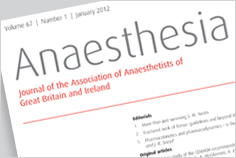 The week at Retraction Watch featured a study suggesting that 2% of studies in eight medical journals contained suspect data, and the announcement of a retraction on a professor’s blog. Here’s what was happening elsewhere: Continue reading Weekend reads: A demand for a CRISPR paper retraction; a weak data-sharing policy; can we trust journals?
The week at Retraction Watch featured a study suggesting that 2% of studies in eight medical journals contained suspect data, and the announcement of a retraction on a professor’s blog. Here’s what was happening elsewhere: Continue reading Weekend reads: A demand for a CRISPR paper retraction; a weak data-sharing policy; can we trust journals?
Author: Ivan Oransky
Two in 100 clinical trials in eight major journals likely contain inaccurate data: Study
 A sweeping analysis of more than 5,000 papers in eight leading medical journals has found compelling evidence of suspect data in roughly 2% of randomized controlled clinical trials in those journals.
A sweeping analysis of more than 5,000 papers in eight leading medical journals has found compelling evidence of suspect data in roughly 2% of randomized controlled clinical trials in those journals.
Although the analysis, by John Carlisle, an anesthetist in the United Kingdom, could not determine whether the concerning data were tainted by misconduct or sloppiness, it suggests that editors of the journals have some investigating to do. Of the 98 studies identified by the method, only 16 have already been retracted. [See update at end.]
The types of studies analyzed — randomized controlled clinical trials — are considered the gold standard of medical evidence, and tend to be the basis for drug approvals and changes in clinical practice. Carlisle, according to an editorial by John Loadsman and Tim McCulloch accompanying the new study published today in Anesthesia, Continue reading Two in 100 clinical trials in eight major journals likely contain inaccurate data: Study
Weekend reads: ‘Pile of dung’ republished; Diverging views on publishing negative results; Economists share regrets
 The week at Retraction Watch featured an unusual warning from the New England Journal of Medicine, and the withdrawal of a paper over a fear of legal threats. Here’s what was happening elsewhere: Continue reading Weekend reads: ‘Pile of dung’ republished; Diverging views on publishing negative results; Economists share regrets
The week at Retraction Watch featured an unusual warning from the New England Journal of Medicine, and the withdrawal of a paper over a fear of legal threats. Here’s what was happening elsewhere: Continue reading Weekend reads: ‘Pile of dung’ republished; Diverging views on publishing negative results; Economists share regrets
RAND withdraws report on child welfare reform for further analysis
 Last week, Emily Putnam-Hornstein, an associate professor at the University of Southern California, was reading what seemed like a noteworthy new report from the RAND Corporation on the child welfare system. But then she realized that some of the key estimates were off. When she sent the report to some colleagues, they agreed.
Last week, Emily Putnam-Hornstein, an associate professor at the University of Southern California, was reading what seemed like a noteworthy new report from the RAND Corporation on the child welfare system. But then she realized that some of the key estimates were off. When she sent the report to some colleagues, they agreed.
Curious, Putnam-Hornstein and some of her colleagues tuned into a RAND webinar on Thursday, May 25, to discuss the report, Improving Child Welfare Outcomes: Balancing Investments in Prevention and Treatment, which had been released two days earlier. They asked the report’s lead author, Jeanne Ringel, about the numbers, and Ringel responded by saying they were on-target. (Ringel recalls acknowledging that the numbers were conservative, but that revised inputs would not change the overall results substantially.) The Pritzker Foundation, which had funded the study, also dismissed the concerns.
Ringel, however, contacted Putnam-Hornstein to suggest a phone call. The Memorial Day holiday weekend was just about underway, so the call was scheduled for Wednesday, the 31st. In the meantime, Putnam-Hornstein and other researchers drafted a letter explaining their concerns. A conference call happened on the 31st, during which the critics shared their concerns, and also said that they’d publish the letter online if the report was not retracted swiftly.
Apparently, the critics were persuasive:
Continue reading RAND withdraws report on child welfare reform for further analysis
Weekend reads: The editor who’s a dog; the fake author; a monument to peer review
 The week at Retraction Watch featured the retraction of a much-discussed paper on using blockchain to prevent scientific misconduct, and a researcher who lost nine studies at once from a single journal. Here’s what was happening elsewhere: Continue reading Weekend reads: The editor who’s a dog; the fake author; a monument to peer review
The week at Retraction Watch featured the retraction of a much-discussed paper on using blockchain to prevent scientific misconduct, and a researcher who lost nine studies at once from a single journal. Here’s what was happening elsewhere: Continue reading Weekend reads: The editor who’s a dog; the fake author; a monument to peer review
Weekend reads: A hoax involving a “conceptual penis;” fake reagents; plagiarism irony
 The week at Retraction Watch featured a survey of researchers in China with an alarming result, and asked whether philosophy has a plagiarism problem. Here’s what was happening elsewhere: Continue reading Weekend reads: A hoax involving a “conceptual penis;” fake reagents; plagiarism irony
The week at Retraction Watch featured a survey of researchers in China with an alarming result, and asked whether philosophy has a plagiarism problem. Here’s what was happening elsewhere: Continue reading Weekend reads: A hoax involving a “conceptual penis;” fake reagents; plagiarism irony
Weekend reads: Prison for sharing an article?; which country has most fake peer review retractions; counterfeit reagents
 The week at Retraction Watch featured a look at a school where everyone has published in possibly predatory journals, and doubts about a study of doing math unconsciously. Here’s what was happening elsewhere: Continue reading Weekend reads: Prison for sharing an article?; which country has most fake peer review retractions; counterfeit reagents
The week at Retraction Watch featured a look at a school where everyone has published in possibly predatory journals, and doubts about a study of doing math unconsciously. Here’s what was happening elsewhere: Continue reading Weekend reads: Prison for sharing an article?; which country has most fake peer review retractions; counterfeit reagents
Weekend reads: A modern-day witch hunt; overly honest limitations; doing the right thing
 The week at Retraction Watch featured the launch of an award for doing the right thing, and a hijacked journal getting its name back. Here’s what was happening elsewhere: Continue reading Weekend reads: A modern-day witch hunt; overly honest limitations; doing the right thing
The week at Retraction Watch featured the launch of an award for doing the right thing, and a hijacked journal getting its name back. Here’s what was happening elsewhere: Continue reading Weekend reads: A modern-day witch hunt; overly honest limitations; doing the right thing
Weekend reads: New calls for retraction; more on fake peer review; how long does peer review take?
 The week at Retraction Watch featured a look at how long journals take to respond to retraction requests, and news of a $10 million settlement for research misconduct allegations. Here’s what was happening elsewhere: Continue reading Weekend reads: New calls for retraction; more on fake peer review; how long does peer review take?
The week at Retraction Watch featured a look at how long journals take to respond to retraction requests, and news of a $10 million settlement for research misconduct allegations. Here’s what was happening elsewhere: Continue reading Weekend reads: New calls for retraction; more on fake peer review; how long does peer review take?
Weekend reads: A “culture of fear?”; blogs vs. academic papers; neurosurgery retractions on the rise
 The week at Retraction Watch featured a new record for most retractions by a single journal, and an impassioned plea from a biostatistician for journals to clean up their act. Here’s what was happening elsewhere: Continue reading Weekend reads: A “culture of fear?”; blogs vs. academic papers; neurosurgery retractions on the rise
The week at Retraction Watch featured a new record for most retractions by a single journal, and an impassioned plea from a biostatistician for journals to clean up their act. Here’s what was happening elsewhere: Continue reading Weekend reads: A “culture of fear?”; blogs vs. academic papers; neurosurgery retractions on the rise